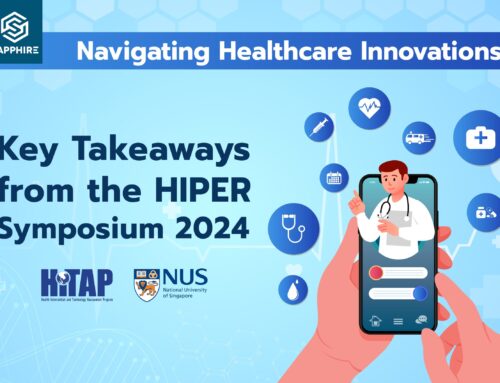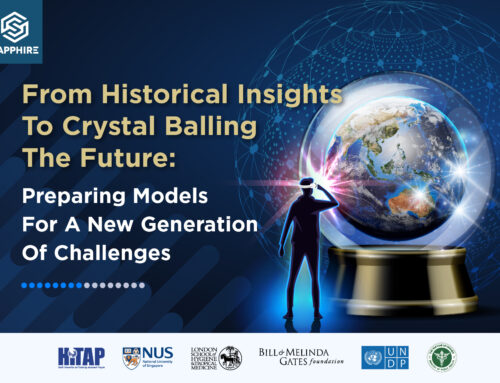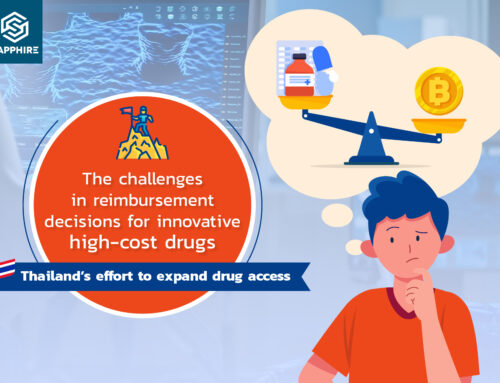The Prince Mahidol Award Conference (PMAC) 2020 took place in Bangkok between January 28th and February 2nd. This year PMAC was combined with the Universal Health Coverage (UHC) Forum, and the theme for the conference was Accelerating Progress towards UHC. Every year the conference attracts an array of high-profile speakers and attendees and this year was no different; the opening session featured speeches from Her Royal Highness Princess Maha Chakri Sirindhorn, Princess Dina Mired of Jordan and Ban Ki-moon, former Secretary General of the United Nations and Deputy Chair of The Elders. The recipients of the 2019 Prince Mahidol Award, Professors Ralf Bartenschlager and David Mabey (in the fields of Public Health and Medicine, respectively), provided a summary of their contributions that led to them collecting the award.
Professor Ralf Bartenschlager laid the groundwork that led to the development of direct-acting antivirals (DAAs) which revolutionised hepatitis C virus (HCV) treatment. The development of DAAs made global elimination of HCV as a public health threat by 2030 a feasible prospect and led to the adoption of this as a target by the World Health Organization (WHO) in 2016. Whilst working in The Gambia, Professor David Mabey became interested in ocular chlamydia trachoma, which caused blindness in large numbers of people in the country. At that time in the 1980s, the recommended treatment for trachoma was tetracycline ointment. Professor David Mabey and his team performed a randomised control trial with a new antibiotic, azithromycin, which showed that a single dose was as effective as 6 weeks of supervised tetracycline ointment in curing trachoma. As a result of his important work, the WHO made elimination of trachoma as a public health concern by 2020 and millions of people in the world’s poorest countries have avoided blindness as a result. The talks from the laureate speakers were incredibly motivating and proof of the contribution that research can make to global health.
HITAP staff were present at many of the sessions over the course of the week and our guest bloggers, Chris Painter and Aparna Ananthakrishnan, have summarised their highlights from the conference below.
Reflections from PMAC – Chris Painter
HITAP were invited to submit candidates to PMAC to be official rapporteurs for the event, and I was fortunate enough to be selected for this great opportunity and contribute to the official documentation of the Plenary and Parallel Sessions. I was part of the rapporteur team for Plenary Session 1.5 “Ensuring Health Promotion and Disease Prevention in UHC”. The session itself was incredibly interesting, with several case studies of examples of initiatives and programs aimed at the promotion of good health in Singapore, the Philippines, Iran, Kenya and Thailand. As treatments for non-communicable diseases (NCDs) account for an increasingly larger proportion of healthcare spending, disease prevention and promotion of good health programs will be key in preventing the costs for UHC schemes spiralling out of control.

Chris and the rapporteur team for Plenary Session 1.5.
Mahidol University hosted the side session titled “Translation of Health Technology Assessment Research into Evidence-Based Policies and Actions Towards Achieving Universal Health Coverage: Lessons Learned from Low- and Middle-Income Countries” on Thursday 30th January, which offered a showcase of presentations from graduates of their flagship MSc Health Technology Assessment international program, which has been running for four years now. Moderated by Professor Anthony Culyer, the session featured research examples from individual low- and middle-income countries (Philippines and Vietnam), as well as multi-country research. The session demonstrated the empowering effect that the course has had in equipping the students to inform decision-making in their regions of focus.
As an example, the first presentation was on a cost-utility analysis of adjuvant trastuzumab therapy for HER2-positive early-stage breast cancer in the Philippines; the treatment was found to not be cost-effective at a willingness-to-pay threshold equal to the gross domestic product per capita of the Philippines. As the treatment was already available through a pilot scheme in the country, this research helped apply pressure on policymakers to discontinue use of trastuzumab unless they can procure it at a cheaper price. Furthermore, threshold analyses were conducted which estimated the required price of trastuzumab for the treatment to be cost-effective compared to the comparator treatments, and the policymakers in the Philippines have now entered negotiations with the manufacturer to seek a lower price.
Reflections from PMAC – Aparna Ananthakrishnan
As a first-time attendee of PMAC, I had the unique opportunity to partake in many different capacities at this year’s event- as participant, master of ceremonies and rapporteur.
“Investing in the Health Workforce towards UHC and SDGs: A Community-based Approach”, a side session hosted by Mahidol University, highlighted the role of human resources for health as a critical component of achieving both the Sustainable Development Goals (SDGs) and UHC, a topic often discussed but with little tangible progress. The session featured an interesting mix of panellists, representing older and younger generations of health professionals and detailed country experiences from the National Health Services in the United Kingdom as well as the health system in Thailand. Retention of human resources in remote, rural areas was one of the prominent discussion topics as this formed the backbone of a primary care led health system. As an example, Dr. Suwit Wibulpolprasert elaborated on Thailand’s experience of rural recruitment, local training and hometown placement for physicians and nurses, ensuring their passionate contributions in those regions while enjoying the familiarity of their family and friends. Another country-level strategy focused on developing social and managerial capacities of physicians in these regions and not just their clinical expertise, allowing sustainable human resource management. In echoing this sentiment, Prof. Neil Squires of the Better Health Programme, UK advised that often reforming the health system required solutions that lay outside the health sector, such as building healthy environments and identifying innovative financing methods. To fulfil the vision of a community-based approach to UHC, the current expenditure on health promotion and disease prevention must also be significantly expanded and prioritized. Furthermore, speakers showcased the economic case for investing in the health workforce as a step towards attaining inclusive economic growth, quoting examples of trade and regional blocs such as the G-20, G-7 and the African Union who are advocating for these sorts of investments. The audience contributed well to the discussion, pointing out the conspicuous absence of gender as a key element in the session’s discussions.

Dr. Suwit Wibulpolprasert discussing the Thailand experience at the session
In my most prominent role at this year’s conference, I represented HITAP as a master of ceremonies for the launch of the book “Best Buys, Wasted Buys and Contestable Buys”. The preliminary findings of this project were delivered at the most well-attended parallel session in PMAC 2019. Authored by 20 experts from across 8 countries in the world, this book serves as a toolkit to enable program managers and policy makers to choose the most efficient interventions for NCD prevention. The launch brought together many different interest groups, united by the common goal of understanding ways to achieve substantial impact in the prevention of NCDs, specifically in contexts with poorly developed health systems which place an emphasis on tertiary, hospital-based care. The event included a lucky draw contest, a question-answer session with the co-editors of the book, as well as a keynote address from a prominent, global health policymaker. Attendees received free hard copies of the book and had the opportunity to further engage with many of the authors.

Master of ceremonies at the book launch (Aparna on the right)

Audience at the book launch
On the third day of PMAC 2020, I was part of the rapporteur team for Plenary 3.0 “UHC and the Changing Global Landscape” which allowed us to contribute to the official documentation of the event. I was greatly inspired by the breadth of discussion at this session – case studies from two of the largest nascent UHC schemes (South Africa and India) complemented by keynote speeches on three key determinants of global health (state of the economy, climate change and cyber security). I particularly appreciated the recognition given to climate change as an overarching issue with the potential to reverse all global health gains so far achieved, if left unaddressed; a concern that I felt had been largely left unacknowledged in previous public health and development conferences. PMAC 2020, for me, stood out from other events, as it offered the opportunity to mainstream intersectional concerns with definitive impacts on public health. It also provided a unique balance between academic engagement on several contemporary subjects alongside practical solutions for implementation, allowing a diverse audience to benefit from participation at the event.



